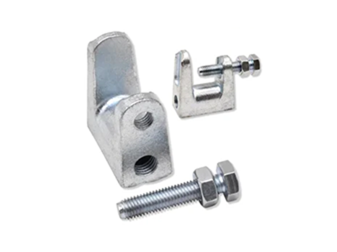Dez . 03, 2024 15:36 Back to list
m24 nut size
Understanding M24 Nut Size A Comprehensive Guide
When it comes to mechanical engineering and construction, the choice of fasteners plays a critical role in ensuring structural integrity and performance. Among various sizes and types of nuts used in applications, the M24 nut stands out for its robust specifications and versatility. In this article, we'll delve into what an M24 nut is, its dimensions, materials, applications, and the significance of selecting the right nut size for your project.
What is an M24 Nut?
An M24 nut is a metric hexagonal nut specifically designed to fit a bolt with a nominal diameter of 24 millimeters. In the metric system, the M denotes the standard metric thread, while the number that follows specifies the diameter of the bolt it is meant to accommodate. M24 nuts are part of a wider range of metric fasteners that are frequently used in various industries, including construction, automotive, and manufacturing.
Dimensions
The dimensions of an M24 nut are regulated by standards such as ISO 4032, which ensures consistency and reliability across applications. The most significant measurements include
- Width Across Flats (WAF) The distance across the flat surfaces of the nut, typically around 36 mm for an M24 nut. - Thickness (T) The thickness can vary, but it generally measures about 10 mm. - Height (H) The height of an M24 nut is around 15–18 mm, depending on the design specifications. - Thread Pitch The standard thread pitch for an M24 nut is usually 3 mm, indicating the distance between the threads.
These precise dimensions make M24 nuts ideal for high-load and high-stress applications, providing secure fastening under varying conditions.
Material Options
m24 nut size

M24 nuts can be made from various materials, each offering unique properties suited for specific environments. Common materials include
- Carbon Steel Known for its strength and affordability, carbon steel is often used for general-purpose applications. These nuts can be coated with zinc or other finishes to enhance corrosion resistance. - Stainless Steel Offering excellent resistance to corrosion, stainless steel M24 nuts are used in environments exposed to moisture or chemicals. - Alloy Steel For applications that require added strength and toughness, alloy steel M24 nuts may be used. They are often heat-treated to improve their mechanical properties.
Selecting the right material is essential, as it directly affects the performance and longevity of the fastener in the intended environment.
Applications
The versatility of M24 nuts makes them suitable for a myriad of applications. Common uses include
- Construction M24 nuts are frequently used in structures such as bridges, buildings, and heavy machinery, where strong fastenings are crucial. - Automotive Industry Used in various vehicle components, M24 nuts ensure that parts remain securely fastened even under dynamic conditions. - Industrial Machinery M24 nuts are integral to assembling machines and equipment, providing reliability in production processes.
Conclusion
In conclusion, understanding the M24 nut size is vital for engineers, contractors, and DIY enthusiasts alike. Its dimensions, material options, and wide range of applications underscore its importance in various fields. When selecting an M24 nut, it is crucial to consider the specific requirements of your project, including load, environmental conditions, and compatibility with other components. By making informed choices, you can ensure the durability and effectiveness of your fastening solutions, ultimately leading to safer and more reliable applications.


